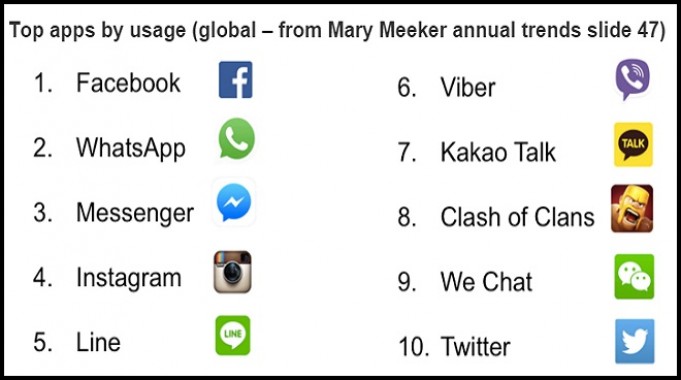Media, journalism and technology predictions 2016
Data and online video would come to dominate journalism in 2016, even as mobile apps become ubiquitous and there is increasing focus on distributing content via smartphones.
Data and video will rule
A study conducted by the Reuters Institute says that more than three-fourths of the world’s top editors, CEOs and ‘digital leaders’ believe that it is “extremely important” to improve the use of data in newsrooms, while more than half think that they would invest more in online news video in 2016.
In the survey of 130 leading Editors, CEOs and Digital Leaders for this report
- 76% said it was extremely important to improve the use of data in newsrooms
- 79% said they would be investing more in online news video this year
- 54% said deepening online engagement was a top priority
- 22% were more worried about online revenues than last year; though surprisingly 20% were less worried
Some of the key predictions for the year on the technology front:
- Ad-blocker/publisher wars move to mobile – they rage through 2016
- Fraud and fake traffic further undermine faith in online advertising
- Renewed focus on paid content of different flavours including crowd funding, membership and micropayment
- Explosion of 360° video, auto-play video and vertical video (get used to it!)
- Growth of identified web (sign in and registration will be critical to delivering cross platform personal content and notifications)
- Breakthrough year for Robo-journalism– strikes in newsrooms over job losses
- Another year of spectacular cyber attacks and privacy breaches
- More measurement of attention/impact, less measurement of clicks
- Messaging apps go mainstream at work (eg Slack, Hipchat, FB at work)
- Scheduled TV viewing on the slide as more viewing shifts to on demand
- Rebirth of audio driven by internet delivery to mobile devices
“Everywhere we will see the growth of analytics and data informed decision-making in technology, marketing and even publishing. In a few years’ time, it will seem extraordinary how uninformed we once were,” the ‘Media, Journalism and Technology Predictions 2016’ report says.
“The online video revolution is beginning to hit its stride driven by faster and more reliable connectivity and an explosion of new content,” the report notes. “But the biggest growth in consumption will come on mobile devices with greater 4G roll out, upgrades to LTE-advanced bringing 5G-like services and new Wifi standards giving connections of up to 1.3G/s. Video is expected to grow 14x within five years and account for 70% of mobile network traffic,” it goes on to say.
This can only mean that news consumption is set to be transformed in a country like India, which already has the second largest mobile user base globally after China. In December, India’s mobile user base crossed the one billion mark.
Noting how US based video streaming site Netflix aims to launch in every country by the end of 2016, the report says that the market for paid video on demand services is likely to double in the next few years “with much of the growth coming from China and India.”
Online video will disrupt television even more than than it already has. “The amount of broadcast television watched is falling in many countries (down almost 5% in the UK last year according to Ofcom), with news and current affairs programmes amongst the worst affected. Despite this, though, we’re watching more television content than ever, on more screens and in more locations with the rapid growth of Video on Demand (VOD) and over the top services (OTT),” it notes. “Meanwhile, in the US around 50m households now subscribe to an over the top service. Consumers are starting to embrace “cord-cutting”: cancelling their cable TV service or getting rid of channels they don’t watch,” it adds.
Public service media may also be under threat, especially in developed countries. “With audience share declining it is harder than ever to maintain support for universal taxation or licence fees. The BBC will come through its charter renewal but not before a further assault from the UK’s newspaper sector over the dominant role of its online news site,” the report notes, adding that in the UK, “licence fee link with the television set will end, closing a loophole that made it possible to watch on-demand television on laptops or smartphones without paying but television services will still face significant cuts including the potential axing of the BBC News channel.”
The Quint and Ola among startups to watch out for
Talking of India, it lists two Indian startups-The Quint, a mobile first news platform promoted by RaghavBahl who was the founder of the Network 18 group, and the taxi hailing app Ola- among the ten startups to watch out for in 2016.
The Quint is “looking to bring a fresh modern tone to coverage of serious and lighter issues,” the report notes. “The site is built on a new digital publishing platform called The Quintype, which not only publishes stories but uses predictive analytics for scheduling articles, builds in social media management and contains an integrated ad engine,” it further says. This comes even as news reports suggest that Bahl’s new venture is in talks with Bloomberg to start an online portal and a business news channel.







